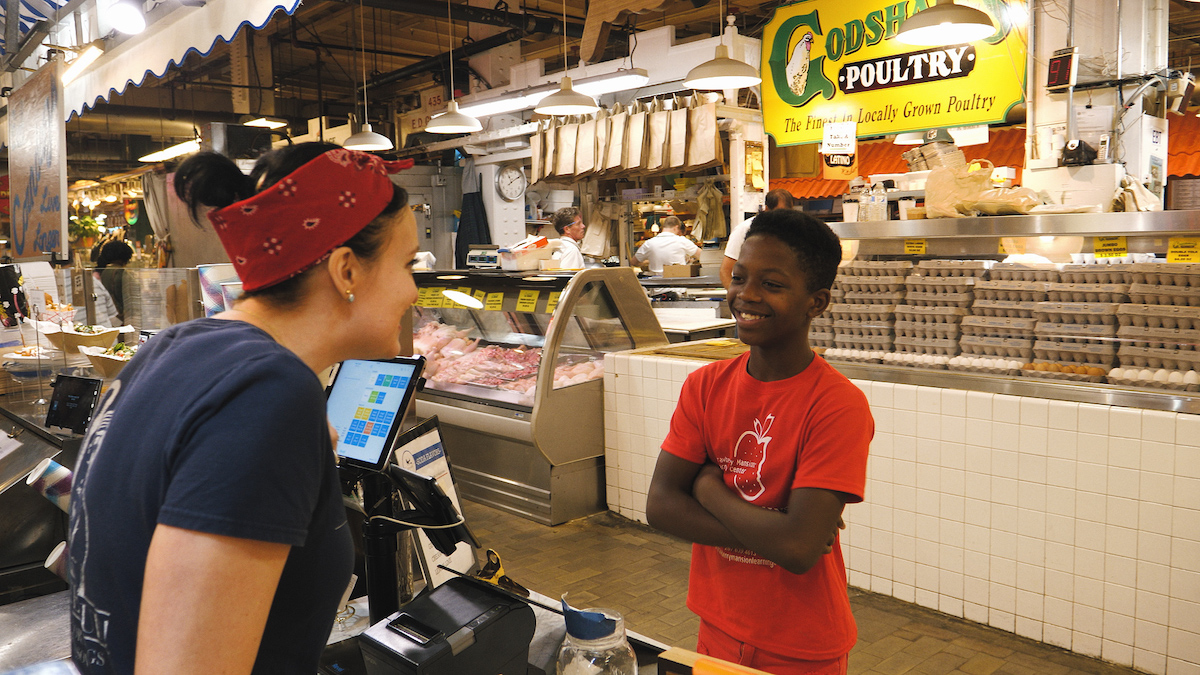Megan Haupt, the founder of local food education company Hungry Education, has what she calls a “nonlinear background” that led her to the 2015-founded startup.
She’s worked in education, in the corporate sector, in theater, and in other industries, but a common thread of storytelling ran through all her work, she told Technical.ly. Haupt had been interested in food and storytelling for nearly two decades, and in 2015, launched her B2C business, focused on educating families and children about food relationships. Instead of providing dietary or cooking-related education, the company taught about the “larger story of food and how it connects into all aspects of our lives.”
The company, run by Haupt and a collection of contractors, switched to B2B a few years in, and began working with Reading Terminal Market on how it could create educational programming for the tons of schools that come and visit during field trips, and contributed to the Breaking Bread, Breaking Barriers community programing. She was also exploring experience design for the field of food education when the pandemic hit and halted business.
“People suddenly were focused on disinfecting their groceries — they weren’t coming in to do hands-on learning about food,” Haupt said.
Haupt participated in The Association for the Study of Food and Society’s Twitter conference in 2020, exploring using sci-fi and speculative fiction to explore the future of food or alternate worlds. You can find the thread below:
https://twitter.com/hungryeducation/status/1286316831234564104
And now in 2022, Haupt has reentered the scene, with some projects especially focused on the future of food. Haupt began working with the Franklin Institute’s STEM Scholars Program to understand, conceptualize and create solutions around food waste and sustainability. The program serves 14- to 18-year-olds who are exploring careers in STEM, and Hungry is working with the Drexel Food Lab on the summer 2022 curriculum.
“We’re really unusual in that we focus on food relationships, history, science, tech, engineering,” Haupt said. “There’s so much that goes into our relationship with food.”
The program will address how future generations will face challenges related to food, including meeting future food demands, issues of food waste and how reducing food waste can lessen the impact of climate change. This summer, students will use the forward-thinking and solutions-based program to solve the waste challenge, working alongside industry professionals to learn about the widespread issue of food waste and to design “workable solutions.” The program is hands on, and includes field trips, cooking lessons, and guest speakers and students will be able to use STEM skills to identify current issues and solve future problems.
“The future of food has everything to do with STEM,” Haupt said. “Food showing up on your table is hard to understand. By connecting people with these resources, and getting them excited about the topic in the space of food, thats the type of work we want to do moving forward.”







